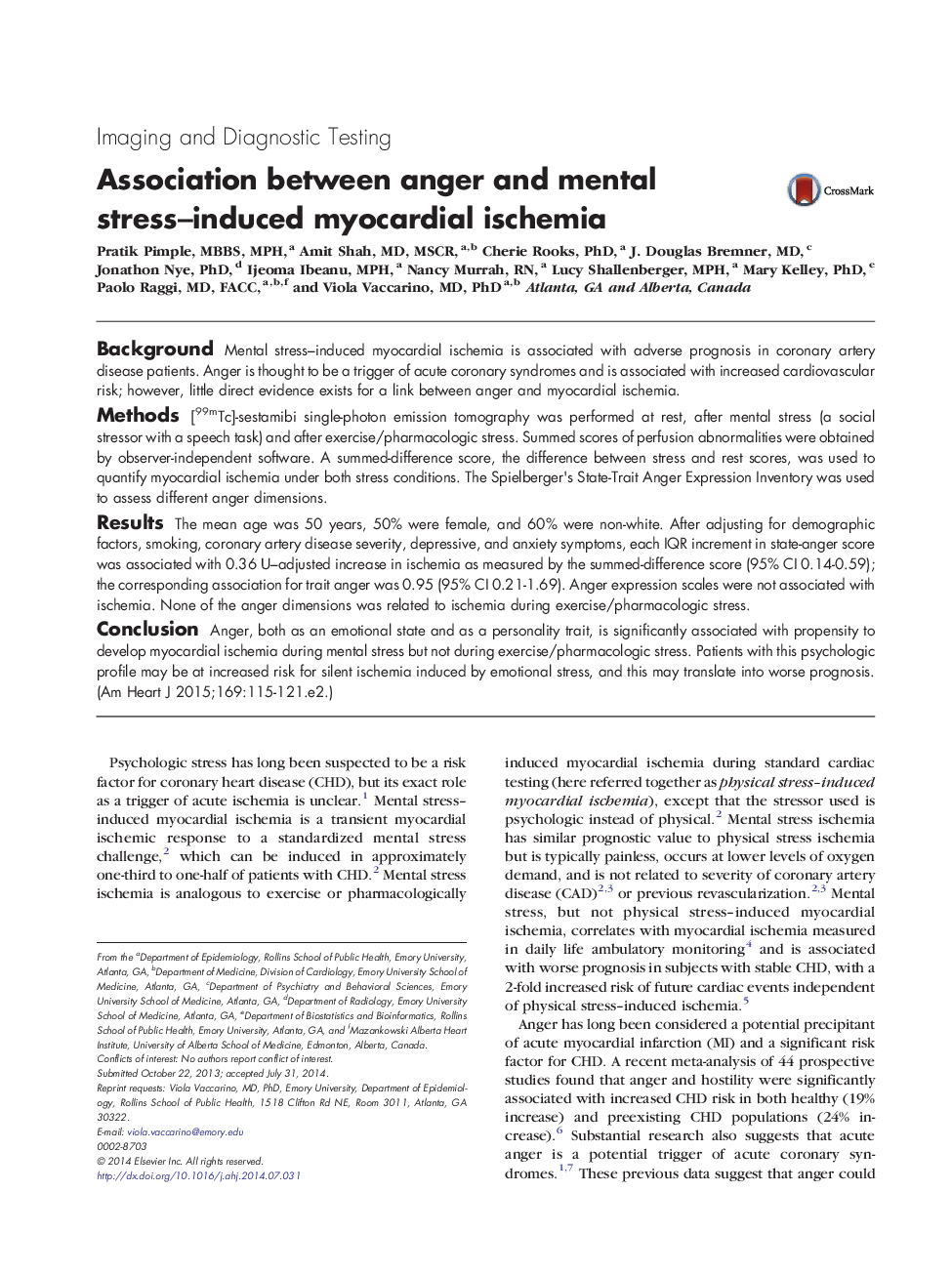| Article ID | Journal | Published Year | Pages | File Type |
|---|---|---|---|---|
| 5927734 | American Heart Journal | 2015 | 9 Pages |
BackgroundMental stress-induced myocardial ischemia is associated with adverse prognosis in coronary artery disease patients. Anger is thought to be a trigger of acute coronary syndromes and is associated with increased cardiovascular risk; however, little direct evidence exists for a link between anger and myocardial ischemia.Methods[99mTc]-sestamibi single-photon emission tomography was performed at rest, after mental stress (a social stressor with a speech task) and after exercise/pharmacologic stress. Summed scores of perfusion abnormalities were obtained by observer-independent software. A summed-difference score, the difference between stress and rest scores, was used to quantify myocardial ischemia under both stress conditions. The Spielberger's State-Trait Anger Expression Inventory was used to assess different anger dimensions.ResultsThe mean age was 50 years, 50% were female, and 60% were non-white. After adjusting for demographic factors, smoking, coronary artery disease severity, depressive, and anxiety symptoms, each IQR increment in state-anger score was associated with 0.36 U-adjusted increase in ischemia as measured by the summed-difference score (95% CI 0.14-0.59); the corresponding association for trait anger was 0.95 (95% CI 0.21-1.69). Anger expression scales were not associated with ischemia. None of the anger dimensions was related to ischemia during exercise/pharmacologic stress.ConclusionAnger, both as an emotional state and as a personality trait, is significantly associated with propensity to develop myocardial ischemia during mental stress but not during exercise/pharmacologic stress. Patients with this psychologic profile may be at increased risk for silent ischemia induced by emotional stress, and this may translate into worse prognosis.
